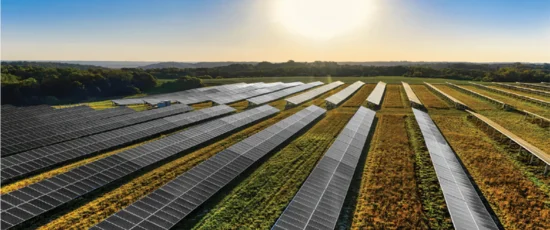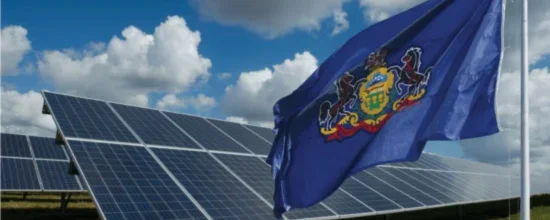Boost your Savings with
Solar in Pennsylvania
Upgrading Homes & Businesses with Solar Energy for Sustainable Living!
Solar Energy Trends in Pennsylvania
State Incentives and Rebates for Homeowners
01. Philadelphia Solar Rebate Program
02. Homeowners Energy Efficiency Loan Program (HEELP)
03. Net Metering
04. Federal Solar Investment Tax Credit
A major incentive available to Pennsylvanians (and all Americans) who buy solar systems is the Solar Investment Tax Credit (ITC). Installing a solar panel system allows homeowners a 30% federal income tax deduction on the project’s total cost. If the credit amount isn’t fully utilized, it will be carried forward for a maximum of 5 years.
State Incentives and Rebates for Businesses in Pennsylvania
Pennsylvania provides businesses with assistance in paying for solar energy projects through various incentive programs. Whether you run a large company or a small local business, there are incentives available to help you offset the cost of installing solar. Moreover, a certified commercial solar installer can help you take your business to solar in the state. The following are some of the main incentives for businesses:

Green Loan Program
The Pennsylvania Energy Development Authority (PEDA) offers grants to businesses for the development and implementation of renewable energy projects, including solar installations. These grants provide businesses with financial assistance to offset the costs of solar equipment and installation, helping them achieve their sustainability goals while reducing operating expenses.
Alternative Energy Portfolio Standard (AEPS) Solar Carve-Out
All utilities serving retail electric customers in Pennsylvania must meet the state’s Alternative Energy Portfolio Standard. To meet these requirements, utilities must acquire solar alternative energy credits (SAEC). These are produced when a solar installation produces one megawatt-hour (MWh) of electricity.

Solar SME Installation Services in Pennsylvania
If you’re interested in learning more about the best solar installation services and incentives in Pennsylvania, reach out to a local solar installer. Solar SME is a leading provider of solar energy solutions, specializing in residential, commercial, and industrial solar installations.
Explore your Solar Savings in Pennsylvania!
Frequently Asked Questions
In Pennsylvania, solar panels are really worthwhile. Solar energy can save you money and pay for itself over time, even though the initial cost is an investment. Solar panels can offer both energy and financial security, especially in the historically high electricity costs in the majority of the United States.
Because of Pennsylvania’s net metering law, you can sell any excess electricity generated by your solar panels back to the grid and receive credits on your utility bill.
For every SREC generated by your system over the course of the year, you will receive credit from your SREC broker. For instance, you will produce 10 SRECs if your 10-kilowatt system generates 10,000 kWh a year. Your broker is the one who sells these credits, and you get paid for the sales.
Pennsylvania offers several solar incentives that are intended to help make the switch to solar power. The federal government’s Solar Investment Tax Credit is the biggest incentive available to Pennsylvanians, with state and local incentives.
Solar SME is one of the best solar providers in Pennsylvania. We specialize in providing reliable solar solutions tailored to your needs. Whether you’re interested in reducing energy costs or enhancing your home’s sustainability, our expert team ensure a seamless and efficient installation process.

